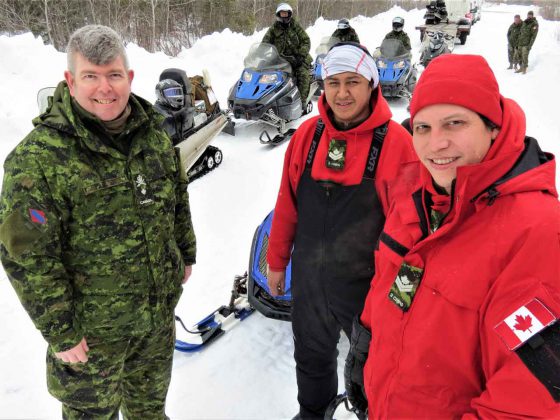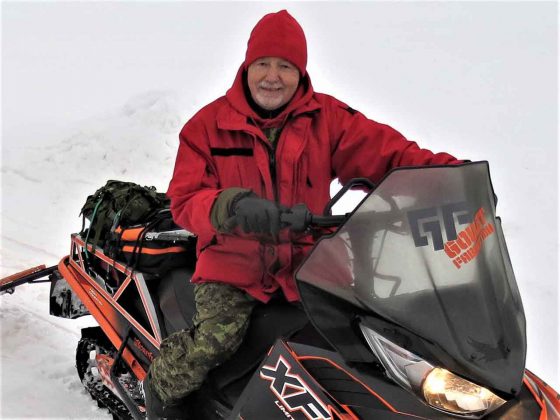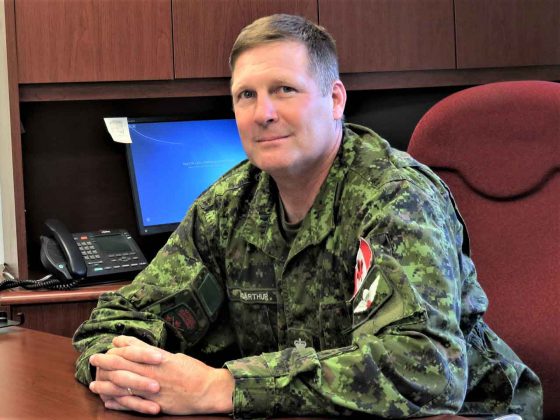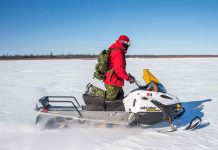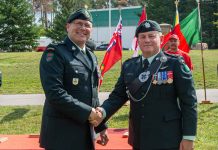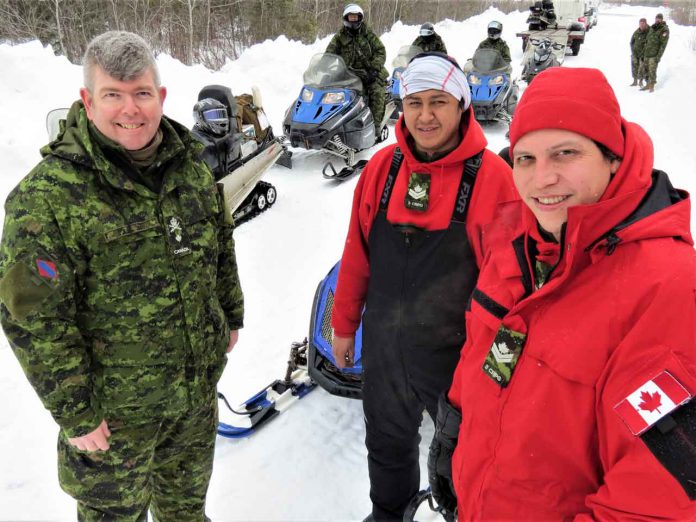
A group of new Canadian Rangers have won praise for the support they provided for a major Canadian Army exercise in Northern Ontario.
The Rangers, who are part-time army reservists, played a crucial role during Exercise Norex20, a week-long army exercise designed to provide about 150 soldiers from southern Ontario reserve units with specialized training in the Northern Ontario bush.
The Rangers were from four related First Nations –Aroland, Ginoogaming, Long Lake No. 58, and Marten Falls, as well as the small towns of Geraldton and Longlac. Their task was to act as guides and teachers by passing on their traditional on-the-land skills to the soldiers.
The Rangers’ units were only stood up as new units in the Canadian Army in November and it was the first real task the new Rangers had experienced with the army.
“They did exactly what we ask Rangers to do and they did an incredible job,” said Brigadier-General Nicolas Stanton, director-general of the Army Reserve, who visited the exercise. “I saw some very energized Rangers, proud to be wearing their red hoodies, proud of their rank on them, and very much part of the exercise and able to contribute to it.”
The Rangers’ commanding officer was also impressed. “The soldiers were impressed by what the Rangers brought to the exercise and what they could teach them,” said Lieutenant-Colonel Shane McArthur, commanding officer of 3rd Canadian Ranger Patrol Group, which commands the Rangers in 27 First Nations across the Far North of Ontario. “The Rangers did an outstanding job.”
During the exercise, the Rangers led three groups of soldiers on snowmobile trips on the land.
“it was quite an experience,” said Master Corporal Gaetan Goulet of the Long Lake No. 58 Ranger patrol. “We had to guide them through river crossings, up and down steep hills, and stuff like that. They learned a lot about snowmobiling from us. At the beginning, you could tell they were novices but on our way back I’d say they had improved by something like 60 per cent.
“The energy in the young soldiers was unbelievable. If one got stuck they were all there to help. I was impressed. They asked us a lot of questions and were eager to learn and they did. They’d be pretty good if they had to come and help us if we needed them in an emergency.”
Master Corporal Giiwedin Kakegabon of the Long Lake No. 58 patrol said the soldiers had impressive military skills but were inexperienced in the bush. Many had never been to Northern Ontario before. “You could see they were from the south,” he said. “They were inexperienced in snowmobiling and not very good at things like fire lighting. But they wanted to learn and they did.
“It was a good experience for them and for us. We saw how the army operates in the field. They learned and we learned.”
“The peoples of the communities to which the Rangers belong can be proud of what their Rangers did,” said Colonel McArthur. “To do this so early in their military service was outstanding and positive. It was excellent how it unfolded. We had the right Ranger instructors in place, the right Rangers doing things the right way and at the right time. The Rangers should be proud.”
(Sergeant Peter Moon is the public affairs ranger for the 3rd Canadian Ranger Patrol at Canadian Forces Base Borden.)

